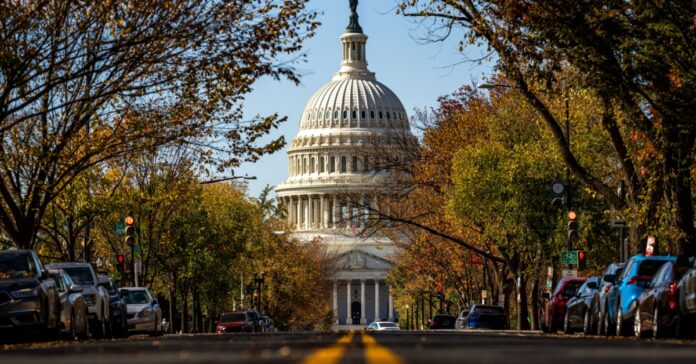
Ladies and gentlemen, gather ’round as we recount the tale of the 118th Congress—a legislative body so inert, it makes a sloth look like an Olympic sprinter. In an era where action was desperately needed, our elected officials chose to perfect the ancient craft of doing absolutely nothing. Bravo!
Let’s start with the numbers, shall we? This Congress managed to pass a grand total of 209 bills. To put that in perspective, previous sessions have typically enacted hundreds more. It’s as if our lawmakers took a solemn vow to uphold the status quo, ensuring that no meaningful legislation would disturb the serene waters of governmental stagnation.
Now, some might argue that fewer laws mean less government intrusion. A fair point. But when the nation faces challenges that require decisive action—like a faltering economy, border security issues, and international threats—one might hope for a tad more engagement from those whose salaries we so generously fund. Instead, we got a masterclass in legislative lethargy.
Consider the pressing matter of the federal budget. In a display of procrastination that would make a college freshman proud, Congress waited until the eleventh hour to pass a stopgap funding bill, narrowly avoiding a government shutdown. This last-minute scramble has become a biennial tradition, much like Thanksgiving dinner with the in-laws—predictable, uncomfortable, and leaving everyone wishing they’d stayed home.
And let’s not forget the bipartisan bickering that has become the hallmark of this distinguished assembly. With each party more interested in scoring political points than in serving the American people, compromise has become as rare as a unicorn sighting. The result? Critical issues like immigration reform, healthcare, and infrastructure remain unaddressed, gathering dust in the halls of Congress. But fear not, dear reader, for our legislators did find time to engage in activities of utmost importance. Renaming post offices, for instance. Truly, the cornerstone of national progress. One can only imagine the relief felt by citizens knowing that their mail will now be handled in buildings bearing new, thoughtfully selected names.
In the realm of foreign policy, the 118th Congress exhibited a level of indecision that can only be described as breathtaking. Faced with global challenges, our lawmakers opted for a strategy of strategic ambiguity—emphasis on ambiguity. Allies were left guessing, adversaries emboldened, and the American people scratching their heads, wondering if anyone was actually in charge.
Of course, no discussion of this Congress would be complete without mentioning the internal strife that paralyzed the House of Representatives. Leadership battles, factional infighting, and a revolving door of committee chairs created an atmosphere of chaos more suited to a reality TV show than the legislative branch of the world’s leading democracy. It’s almost as if they were trying to set a new record for dysfunction.
In conclusion, the 118th Congress has set a new standard for legislative inertia. At a time when the nation needed bold action and decisive leadership, we were treated to a spectacle of dithering and delay. One can only hope that future Congresses will look back on this period and resolve to do better. But then again, hope, much like productivity in Congress, seems to be in short supply these days.







